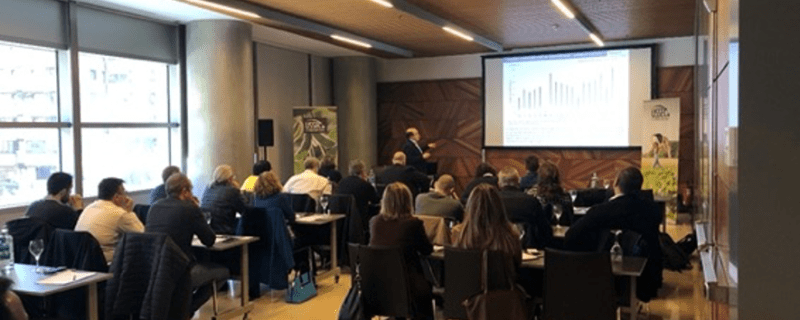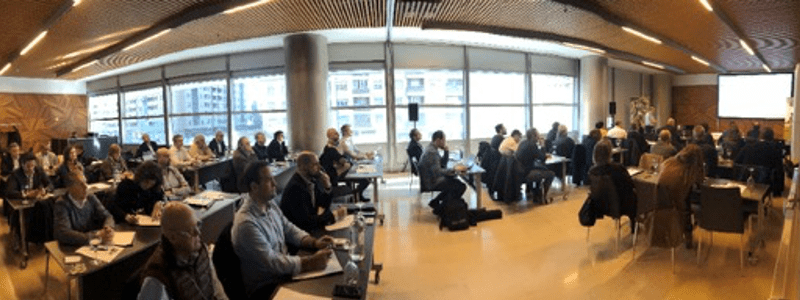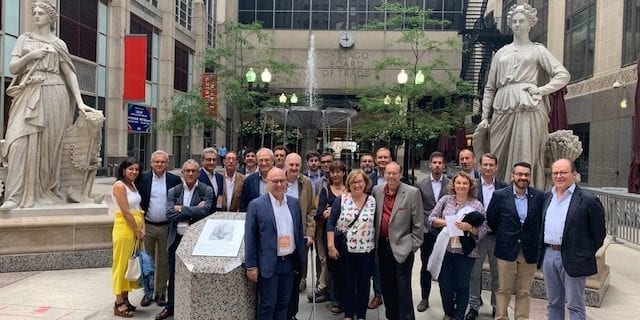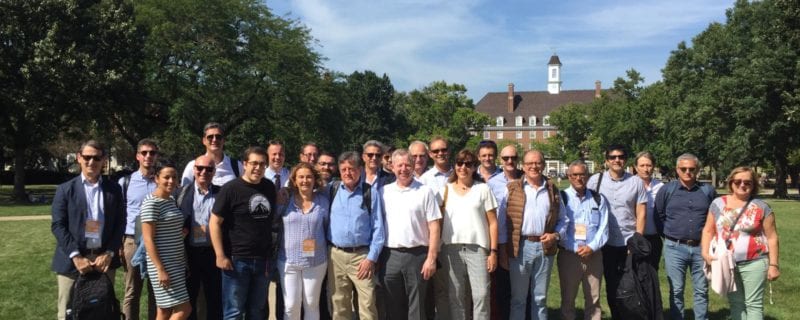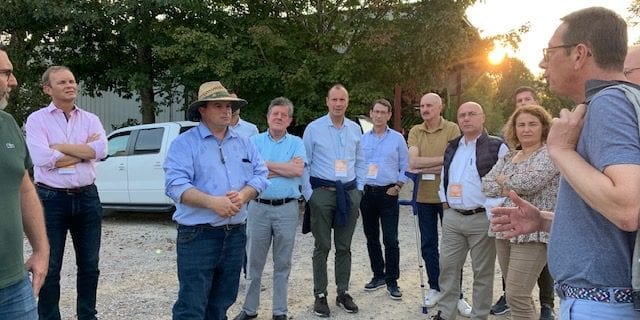European Customers Attend Country Meetings in Spain
- Category:
- Animal Utilization
- General News
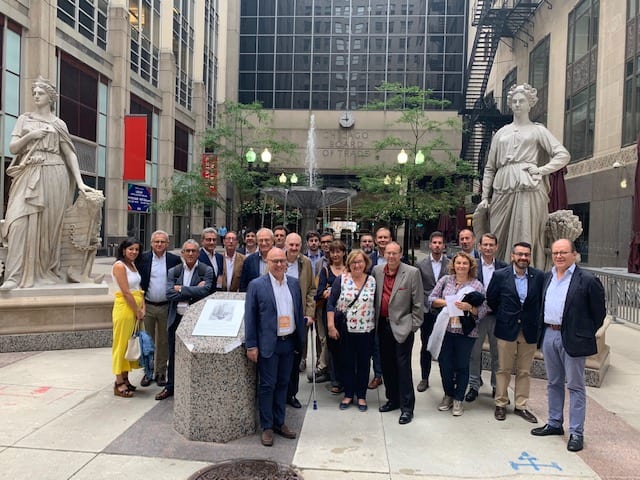
Editor’s note: The event featured in this story took place prior to the USSEC travel ban due to COVID-19.
USSEC organized two country meetings in Spain during February, one in Zaragoza, situated in north east of Spain and the second one in Seville, in the south of the country. Both areas are key in production of feed and pork and poultry which means a high level of soybean meal consumption.
Consumers’ supply in the Zaragoza area comes from three crushing plants: two Bunge plants, one in Bilbao and other in Barcelona; and one Cargill plant, also situated in Barcelona. The three plants usually crush U.S. soybeans five to six months a year. The Tarragona port is a large supplier of soy and grains in this area.
Seville is also an important area of soybean meal consumption with three ports in charge of the industry supply: Huelva, Cadiz, and Malaga. There is not a crushing plant in the area and soybean meal is imported from the U.S. and other producers. In southern Spain, several large companies producing turkey as well as poultry production. Southern Spain is also the most important area of Iberian pork production.
Spain has a large deficit in grains and protein and the industry needs to import 15 million tons of grains and 6 million tons of protein, mainly soybeans and soybean meal. Spain is the second largest feed producer in the European Union after Germany with 35 million tons of industrial feed and feed on farm.
Southern Europe is very important in soybean crushing in Europe as Spain, Portugal, and Italy represent 50% of the total EU soy crush. In the last two years, Spain and Portugal have considerably increased imports of U.S. soybeans.
Objectives of the meetings were to join the feed industry in the areas to actualize soy market information and talk quality and sustainability. At this time, U.S. soy products are the most recognized related to sustainability. Deforestation is a big issue in Europe and U.S. production provides the guarantee that the market needs.
Both meetings were attended by the main industries in the area: 45 customers in Sevilla and 55 in Zaragoza.
The meetings focused on global markets, soy quality, environment legislation, new consumer demands, and SSAP sustainability certificates as answers to market demand. Speakers that participated included Gonzalo G. Mateos, Jan van Eys, Mariano Gorrachategui, Rory Deverell, (FCStone), Eduardo San Juan (Bunge), Antonio Ramallal (Cofco), and Lola Herrera.
